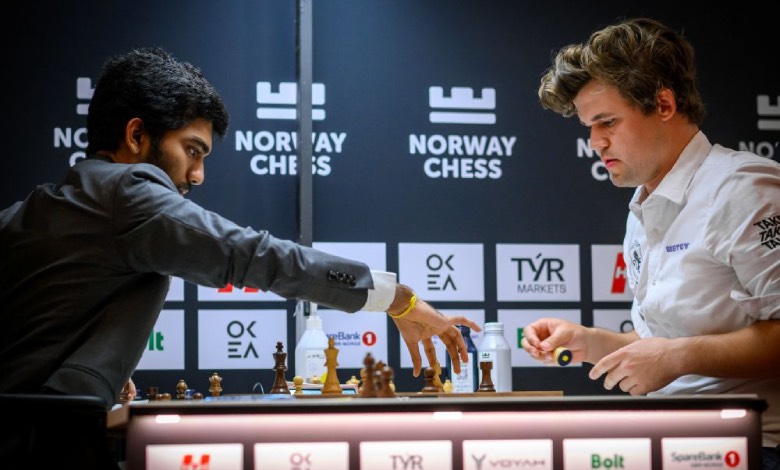D Gukesh Claims Historic Win Over Carlsen, Yet “Really Unhappy” with Norway Chess Performance

Reigning World Champion D Gukesh secured a landmark classical victory over Magnus Carlsen but expressed dissatisfaction with his overall third-place finish at Norway Chess 2025. Gukesh, ranked India No. 3, accumulated 14.5 points, finishing behind winner Magnus Carlsen (16 points) and runner-up Fabiano Caruana (15.5 points). His campaign included notable wins against Carlsen, Hikaru Nakamura, and Arjun Erigaisi.
Reflecting on the tournament exclusively with ChessBase India, Gukesh stated: “Can’t say happy, but there are some things to be happy about, some things to be really unhappy about.” He highlighted a poor start losing his first two games to Carlsen and Erigaisi – as a major negative, despite a strong finish where he had “fair chances” in the final round.
Gukesh acknowledged fluctuating form, contrasting his smooth performances during peak periods like the Candidates and Olympiad with his struggles in Norway: “In this tournament, clearly I was nowhere close to my best. You don’t really control your form. It just comes and goes.” This followed inconsistent results after his World Championship win: a strong second place at the Tata Masters in Wijk aan Zee, but disappointing showings at the Weissenhaus and Paris Freestyle Chess Grand Slams, and a ninth-place finish (out of ten) in a classical event in Bucharest.
Despite the shaky start in Norway, Gukesh rebounded with wins against Nakamura in round three, an Armageddon victory against Caruana, and the standout moment in round six: capitalizing on a significant endgame blunder by World No. 1 Carlsen to secure his first-ever classical win against the Norwegian, who reacted by slamming the table.
Analyzing his resilience, Gukesh contrasted himself with Carlsen: “One thing about Magnus is that even when he is in bad form, he finishes second or third maximum. So one thing that I can be happy about is, even though I was playing pretty badly… I still had chances to win.” However, he pinpointed critical misjudgments in key moments across games as the primary source of unhappiness: “The thing to be unhappy about is simply that in some games, I was just misevaluating… That’s a chess weakness. It’s nice that we could notice it, because I can just work on that.”
Summing up, Gukesh concluded: “Some things to be happy about, some things to be not happy about. Overall, I think it was a nice experience.”




